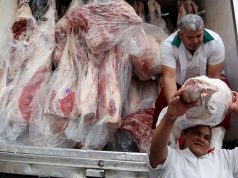A FARMERS’ organization said persistent undervaluation of rice imports is depriving the agriculture sector of tariffs to fund upgrades to their farming technology, and urged the government to counter the undervaluation by resorting to anti-dumping duties.
In a statement, Federation of Free Farmers National Manager Raul Q. Montemayor noted that data from the Bureau of Customs indicate that the average landed cost of rice imports inclusive of insurance and freight was at $227 per metric ton (MT), well below the $391 per MT to $422 per MT estimated cost from the various producing countries, suggesting undervalued shipments which cost the government about P5 billion in foregone revenue.
He said undervalued gain imports represent unfair competition that is also exerting pressure on the prices of domestically-grown rice.
Anti-dumping duties are imposed on imports which a government determines to be priced below fair market value. In the Philippines, these measures are authorized by Republic Act 8752, or the Anti-Dumping Act of 1999, which allows the Secretary of Agriculture to initiate an anti-dumping investigation, the Bureau of Customs (BoC) to require importers to post cash bonds equivalent to the estimated dumping margin, and the Tariff Commission to conduct investigations into anti-dumping complaints.
“The BoC has argued that they cannot question the declared value of imported rice if valid documents are submitted by the importer, even if there appears to be a clear case of undervaluation,” Mr. Montemayor said.
“With anti-dumping, an importer will be subject to higher anti-dumping duties the larger the undervaluation, no matter what documents are submitted. RA 8752 also provides that the license of an importer who is caught dumping can be cancelled, and its officers can be barred from holding positions in any business enterprise in the country,” he noted.
The BoC recently said that it is on track to fund from tariffs the Rice Competitiveness Enhancement Fund (RCEF), which by law must be allocated P10 billion a year.
The Rice Tariffication Act allows rice to be imported more freely by private entities, in exchange for a tariff of 35% on grain from Southeast Asia. The tariffs will finance RCEF to help farmers raise their productivity and gain more access to inputs and credit.
The BoC has collected about P6.5 billion in tariffs as of mid-July. — Vincent Mariel P. Galang



